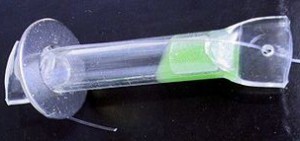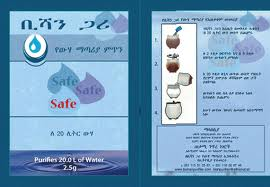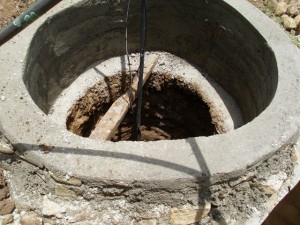IWHA Supports Safe Water Practices
Heat treatment. While it has been a traditional practice to boil water to make it safe, it is not necessary to heat water to 212 degrees Fahrenheit or 100 degrees Celsius. If water is heated to the pasteurization temperature of 149 °F, microbes associated with water borne diseases including diarrhea, cholera, typhoid, dysentery, roto rovirus, polio virus, hepatitis A, giardia and E-coli will be killed. By heating water to this lower temperature, water is made safe and fuel is saved as is the time required to find it. This is significant as women in many countries spend 4-6 hours three times a week searching for fuel. The potential impact of pasteurization on the environment is also significant as it is estimated that two billion people, or one third of the world’s population still cook over open fires that require natural resources, such as trees.
Few people with whom IWHA works have thermometers to know when water has reached the pasteurization temperature. A simple device called a water pasteurization indicator (WAPI) is distributed by IWHA to let people know when water has been pasteurized and made safe. The WAPI is a sealed plastic tube partially filled with wax formulated to melt at 149 °F. The reusable WAPI is suspended from a cord and placed in water being heated. When the wax melts, it flows to the bottom end of the tube indicating that the water has been pasteurized and made safe to drink. After the WAPI is removed from the hot water, the wax hardens again and the device is ready to use again.
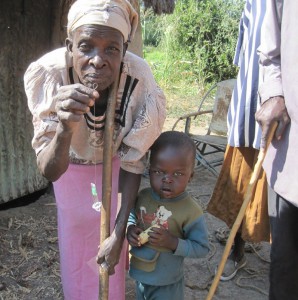
The use of the Water Pasteurization Indicator (WAPI) lets the user know when water has been heated sufficiently to kill dangerous microbes.
Solar cookers made of cardboard and aluminum foil provided by IWHA are an effective, environmentally friendly alternative to open fires that enable solar pasteurization and solar cooking.
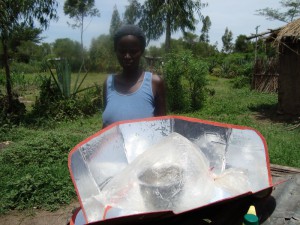
This simple cardboard and aluminum solar cooker can be made locally. In many parts of the world it can cook two meals a day, pasteurize water and eliminate the need to use precious collected wood.
Chemical treatment of water with chlorine based products to kill harmful bacteria and viruses associated with water borne diseases are effective. The cost of these products which are manufactured in liquid or tablet form are added to unsafe water and in most cases, drinking water can be then be used after 30 minutes. The cost of these products depends in part on manufacturing costs and whether or not the product is subsidized.
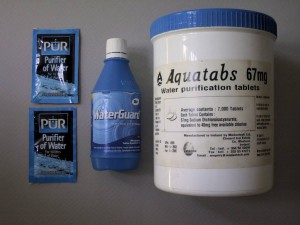
Pur WaterGuard is a subsidized product that costs approximately 25 cents and will treat 1000 liters of water.
Examples below include the
Filters are another option to treat water. Some are more effective and costly than others and need to be serviced regularly to function properly.
Safe storage containers for household use can significantly reduce contamination and the risk of diarrhoeal disease. One of the considerations after treatment of water is to store it safely so that it is not recontaminated. It is IWHA’s belief that sanitation and hygiene should be taught at the same time as water treatment.
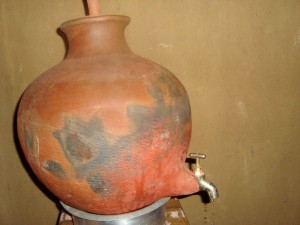
Clay storage containers can be made locally and fitted with a spigot to fill a cup. A small opening at the top allows the container to be refilled but is of such a small size that a child can not reach into the container with a cup or glass to possibly contaminate the clean water.
Water wells can be good sources of safe water when treated, well maintained and then tested regularly for E coli.

